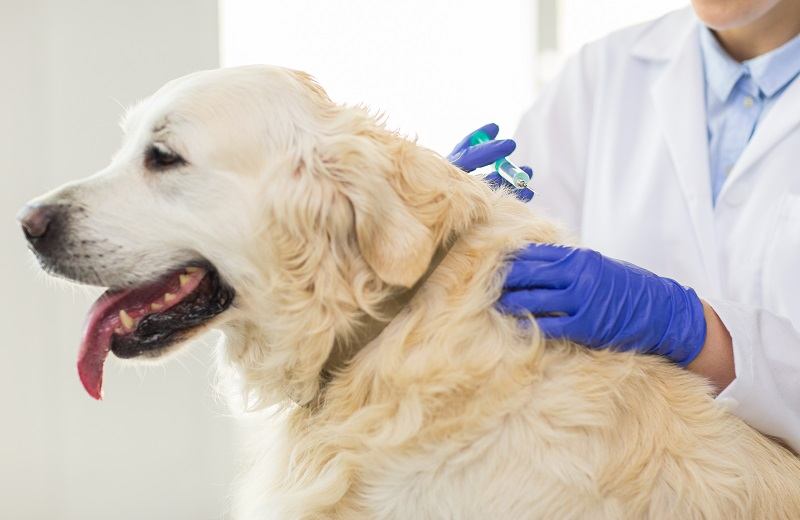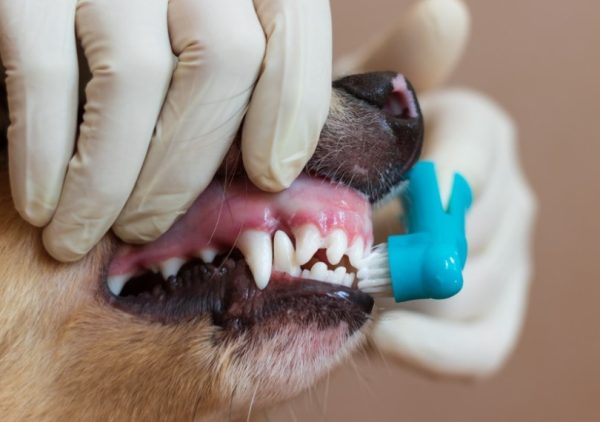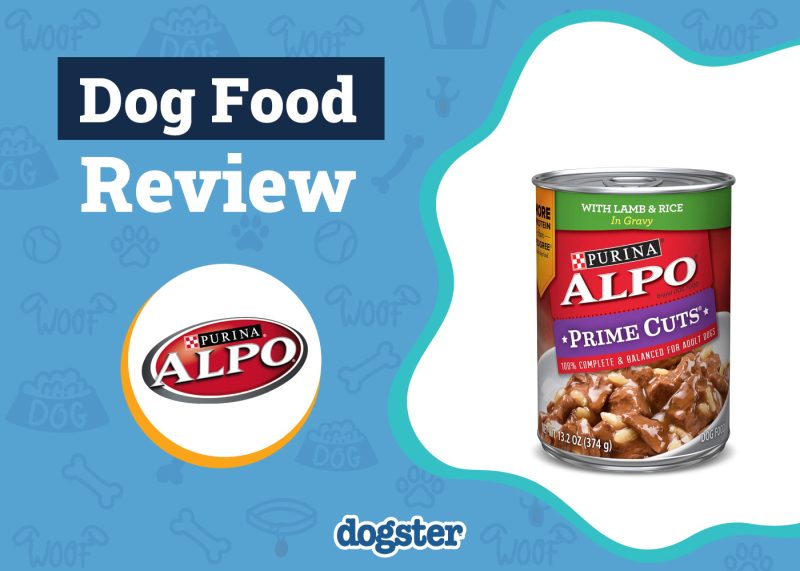In this article
View 3 More +As a responsible dog owner, you always follow your vet’s recommended vaccination schedules to ensure that your pet is protected year-round. This underscores the importance of having a good relationship with your veterinarian and communicating your dog’s individual needs.

What Vaccines Are Required for Dogs?
Here’s a refresher on the basics of dog vaccines.
Core Vaccines vs. Non-core Vaccines
The American Animal Hospital Association (AAHA) recommends the following core vaccines for all dogs, regardless of lifestyle. The only exception is if there is a medical reason not to vaccinate. This is because they protect against serious or life-threatening diseases and are easily transmitted from animal to animal:
- Distemper
- Adenovirus
- Parvovirus
- +/-Parainfluenza
- Rabies
- Note: “DA2PP” is the term used for the distemper, adenovirus-2, parvovirus, and parainfluenza vaccine.
In addition, these non-core vaccines are recommended for certain dogs depending on their lifestyle. For example, if you frequently go on hikes or travel out of state with your dog or if they go to daycare, they may be at higher risk for certain diseases. Leptospira is on this non-core list but the recommendation is that it should be considered for all dogs due to increasing prevalence.
- Leptospira
- Lyme disease
- Bordetella
- Canine influenza
- Rattlesnake toxoid

What Is the Recommended Schedule for Core Vaccines & Boosters Shots?
The AAHA provides a schedule for core vaccines. For example, the recommended initial DA2PP vaccine and booster shots for a 2-year-old dog with a low-risk lifestyle are as follows:
- Initial Vaccine Schedule: Two initial doses must be administered 2 to 4 weeks apart.
- Booster: A single dose of a combination vaccine is administered within 1 year following the last dose in the initial vaccination series.
- Subsequent boosters can be administered at intervals of 3 years.
The rabies shot is different because it is required by law in most states and so local laws need to be followed, the usual schedule is:
- Booster: Administered within 1 year following the initial dose.
- The interval between subsequent doses is determined by the product label of the last vaccine dose administered (i.e., either 1 year or 3 years) and local, state, or provincial law.
For dogs that have low-risk lifestyles or whose owners want less frequent vaccinations, a veterinarian may recommend giving the dog certain core vaccines on a 3-year schedule and may also offer antibody titer testing for certain vaccinations. These blood tests measure antibody levels and can help determine whether a booster vaccination is necessary or not.

What Are the Risks of Over-Vaccinating Your Dog?
The main risk of over-vaccinating dogs is exposing them to potentially adverse effects. The use of vaccines is not without risk, hence the need to avoid unnecessary injections.
Lethargy, soreness, and fever are some of the more common reactions to vaccines. Other, more serious reactions can also occur. While very rare, these include infection and abscess and severe allergic reactions. While risks must of course be minimised, it is important to be aware that all vaccinations will have gone through rigorous safety trials and manufacturers must prove a vaccination is safe and effective before it can be given to your dog.
Consulting a veterinarian is recommended for the best course of action.
If you need to speak with a vet but can't get to one, head over to PangoVet. It's our online service where you can talk to a vet online and get the advice you need for your dog — all at an affordable price!
What Can You Do to Prevent Over-Vaccination in Your Dog?
Learn about current canine vaccination practices to avoid over-vaccinating your dog, and talk to your veterinarian about possible alternatives based on your location and lifestyle. Your pet may not need annual boosters for each of their vaccines, especially if their lifestyle and environment pose a low risk of contracting certain diseases.
In any case, you should still take your dog to your veterinarian for annual checkups and wellness exams. These are crucial to assess the overall health of your pet and help detect signs of health problems. Early diagnosis of diseases can increase the chances of your dog living a long and healthy life.

Final Thoughts
Keep in mind that the benefits of appropriate vaccines for dogs usually far outweighs any potential side effects. But the risks should not be minimized and unnecessary vaccination should be discouraged.
You and your veterinarian should decide which vaccines are appropriate for your dog based on their lifestyle, age, and health. For example, if you travel regularly with your dog or if they are frequently exposed to other dogs, certain vaccinations may be required each year.
Ultimately, how often your pet should be vaccinated is determined by their lifestyle and relative risk, previous vaccination history, and overall health status. The key here is to educate yourself on current vaccination protocols and maintain an open dialogue with your veterinarian.
Related read:
- Can Vaccines Make Lymph Nodes Swell?
- Can Dogs Catch Parvo Twice? Our Vet Explains
- Lepto Vaccine for Dogs: What to Know & Side Effects (Vet Answer)
Featured Image Credit: gorillaimages, Shutterstock




















